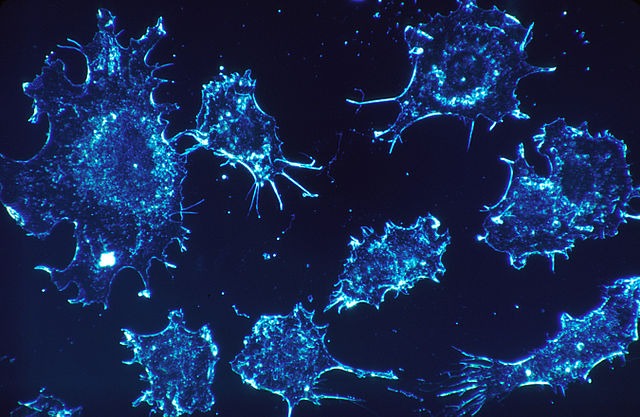Bad luck may play a big role in cancer—but prevention tactics still matter
Ars Technica 2017-03-24

Cancer cells in culture from human connective tissue, illuminated by darkfield amplified contrast, at a magnification of 500x. (credit: NCI, Dr. Cecil Fox)
What causes cancer? High-profile culprits obviously include bum genes inherited from parents and harmful environmental and lifestyle factors, such as smoking or not wearing sunscreen. But in a new study in Science, researchers yet again say a big factor is random mutations—those that naturally and unavoidably occur as our error-prone cells go about the normal process of replication.
In fact, two-thirds of the mutations behind cancer are random—not inherited or induced by our environment—researchers at Johns Hopkins conclude from a fresh statistical analysis. But, they caution, the contribution of genetic bad luck doesn’t mean that many cancers aren’t preventable. It’s a point they emphasize carefully after their previous work set off fiery controversy on the matter.
Back in early 2015, the lead researchers of the new study, Cristian Tomasetti and Bert Vogelstein, published a straightforward hypothesis (also in Science) that the risk of cancers can, in part, be explained by simple stem cell replication. The idea being that the more stem cells a tissue type has and the faster those cells make copies of themselves, the more chances there are for mutations from sheer cellular sloppiness—thus, more chances for cancer. So, if a tissue type has a lot of fast-replicating stem cells, it would have a higher risk of developing cancer over a person's lifetime. This could help explain why different tissue types do have different risks of cancer. Lung and thyroid cancer are far more common than brain and pelvic bone cancer, for instance.